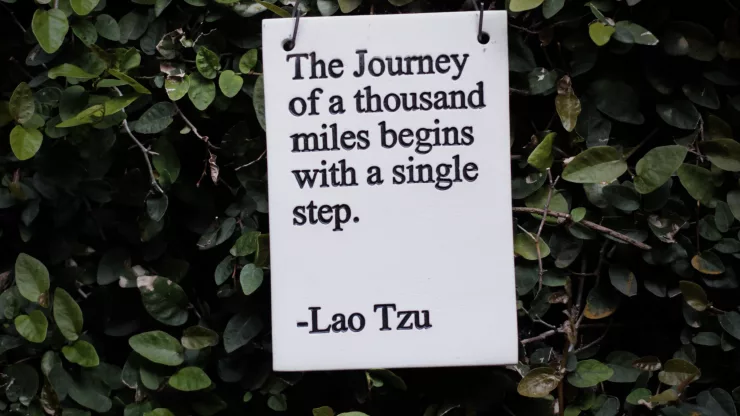Introspection is a powerful tool for self-improvement that involves examining one’s thoughts, emotions, and behaviors.
By taking the time to reflect on oneself, individuals can gain a deeper understanding of their strengths, weaknesses, values, and goals.
In this article, we will explore the role of introspection in self-improvement, the benefits of introspection, the process of introspection, and how to overcome challenges in introspection.
Jump to Section
Introduction
Introspection is the process of examining one’s thoughts, emotions, and behaviors. It involves looking inward to gain a deeper understanding of oneself.
Introspection is an essential tool for self-improvement as it allows individuals to identify their strengths and weaknesses, values, and goals.
By taking the time to reflect on oneself, individuals can become more self-aware, make better decisions, and develop emotional intelligence.
In this article, we will explore the benefits of introspection, the process of introspection, and how to overcome challenges in introspection.
The Benefits of Introspection
Increased Self-Awareness
Introspection can increase self-awareness by helping individuals understand their thoughts and emotions, recognizing patterns in behavior, and identifying strengths and weaknesses. By becoming more self-aware, individuals can make better choices that align with their values and goals.
Improved Decision-Making
Introspection can also improve decision-making by helping individuals make choices based on personal values and goals, avoiding impulsive decisions, and analyzing potential outcomes. By taking the time to reflect on their thoughts and emotions, individuals can make decisions that align with their long-term goals.
Enhanced Emotional Intelligence
Introspection can also enhance emotional intelligence by developing empathy and compassion, managing emotions effectively, and building stronger relationships. By understanding their own emotions and the emotions of others, individuals can build better relationships and communicate more effectively.
The Process of Introspection
Finding Time for Reflection
Finding time for reflection is essential in the process of introspection. Individuals can incorporate introspection into their daily routines, identify optimal times for reflection, and create a conducive environment for reflection.
Asking the Right Questions
Asking the right questions is crucial in the process of introspection. Individuals can focus on specific areas of life, challenge assumptions and beliefs, and seek honest answers.
By asking the right questions, individuals can gain a deeper understanding of themselves.
Journaling and Meditation
Journaling and meditation are effective tools for introspection. Individuals can benefit from journaling by writing down their thoughts and emotions, and different types of meditation practices can help individuals achieve a deeper level of reflection.
Combining journaling and meditation can help individuals gain a deeper understanding of themselves.
Overcoming Challenges in Introspection
Dealing with Resistance
Dealing with resistance is a common challenge in introspection. Individuals may avoid introspection due to discomfort or vulnerability.
Strategies for overcoming resistance include acknowledging and accepting discomfort, setting aside time for reflection, and seeking support from others.
Addressing Biases and Blind Spots
Addressing biases and blind spots is another challenge in introspection. Individuals may have biases that affect their self-awareness, and blind spots can make it difficult to see oneself accurately.
Strategies for addressing biases and blind spots include seeking feedback from others and challenging assumptions and beliefs.
Balancing Introspection and Action
Balancing introspection and action is also a challenge in introspection. Individuals may become stuck in overthinking and analysis paralysis, preventing them from taking action.
Strategies for balancing introspection and action include setting goals and taking action, evaluating progress, and adjusting course as needed.
Conclusion
Introspection is a powerful tool for self-improvement that can increase self-awareness, improve decision-making, and enhance emotional intelligence.
By finding time for reflection, asking the right questions, and utilizing journaling and meditation, individuals can gain a deeper understanding of themselves.
Overcoming challenges in introspection, such as dealing with resistance, addressing biases and blind spots, and balancing introspection and action, can help individuals make progress towards their goals.
We encourage individuals to make introspection a habit and take the time to reflect on themselves regularly. By doing so, individuals can become more self-aware, make better decisions, and develop emotional intelligence.
FAQ
How often should I practice introspection?
There is no set frequency for practicing introspection. Individuals can practice introspection as often as they feel necessary to gain a deeper understanding of themselves.
Some individuals may find it helpful to practice introspection daily, while others may prefer to reflect less frequently.
How can I overcome discomfort and vulnerability in introspection?
Acknowledging and accepting discomfort and vulnerability is an important step in overcoming these challenges. Seeking support from others, setting aside time for reflection, and utilizing relaxation techniques such as deep breathing or progressive muscle relaxation can also be helpful.
How can I challenge my assumptions and beliefs during introspection?
Challenging assumptions and beliefs can be done by asking yourself questions and examining your thoughts and emotions. You can also seek feedback from others to gain a different perspective on your beliefs and assumptions.

With a deep passion for personal development, Ben has dedicated his career to inspiring and guiding others on their journey towards self-improvement.
His love for learning and sharing knowledge about personal growth strategies, mindfulness, and goal-setting principles has led him to create My Virtual Life Coach.
Contact Ben at [email protected] for assistance.




